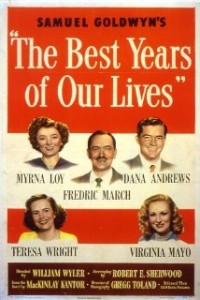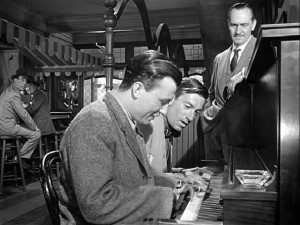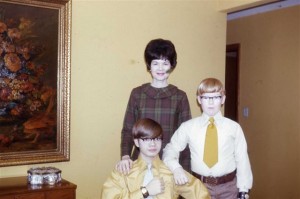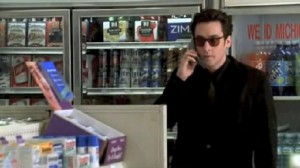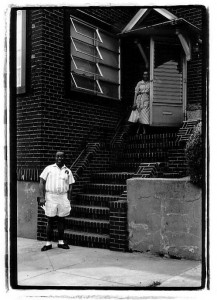 “Admitted that the music critic is expected to listen once a month to the fifth symphony of Beethoven and the ‘Pathétique’ of Tchaikovsky and the third Brandenburg Concerto of Bach; still these works are at any rate the products of genius. The average ‘new’ play is not even talented or adult. The music critic is kept in touch with large and creative minds; the dramatic critic may well yawn through twenty successive nights of banal thought and emotion. When we come to think of it, there are few masterpieces of the theatre that will bear perpetual acquaintance, measured with the masterpieces of music, painting and literature. I could easily compile a list of a hundred large-scale compositions with which we are able to live delightedly for a lifetime. How many plays could likewise be chosen?—excepting poetic drama (that is, all drama which aspires to the conditions of music and deals first with the emotions in terms of character and only second with a didactic criticism of manners or society). I question whether, beginning from Ibsen, a dozen such masterpiees have been written.”
“Admitted that the music critic is expected to listen once a month to the fifth symphony of Beethoven and the ‘Pathétique’ of Tchaikovsky and the third Brandenburg Concerto of Bach; still these works are at any rate the products of genius. The average ‘new’ play is not even talented or adult. The music critic is kept in touch with large and creative minds; the dramatic critic may well yawn through twenty successive nights of banal thought and emotion. When we come to think of it, there are few masterpieces of the theatre that will bear perpetual acquaintance, measured with the masterpieces of music, painting and literature. I could easily compile a list of a hundred large-scale compositions with which we are able to live delightedly for a lifetime. How many plays could likewise be chosen?—excepting poetic drama (that is, all drama which aspires to the conditions of music and deals first with the emotions in terms of character and only second with a didactic criticism of manners or society). I question whether, beginning from Ibsen, a dozen such masterpiees have been written.”
Neville Cardus, Second Innings

